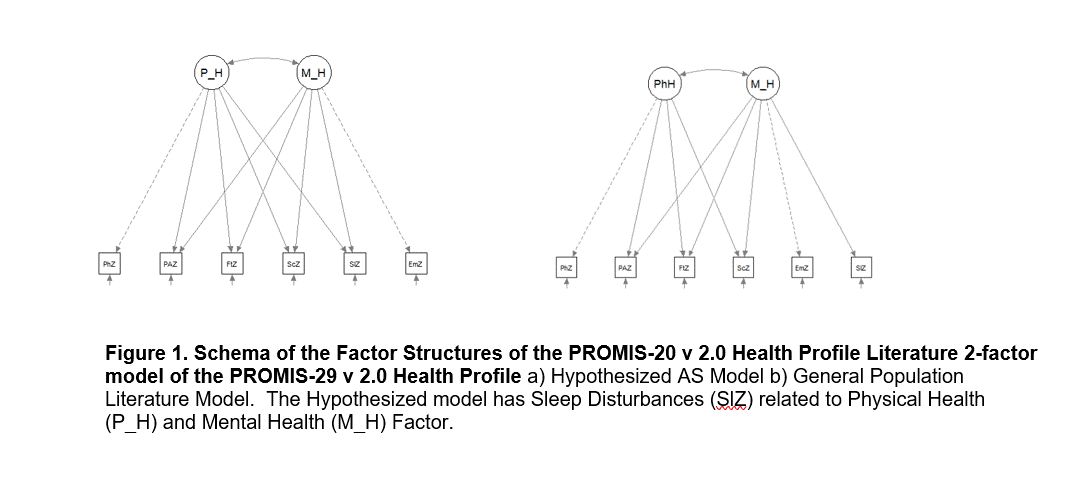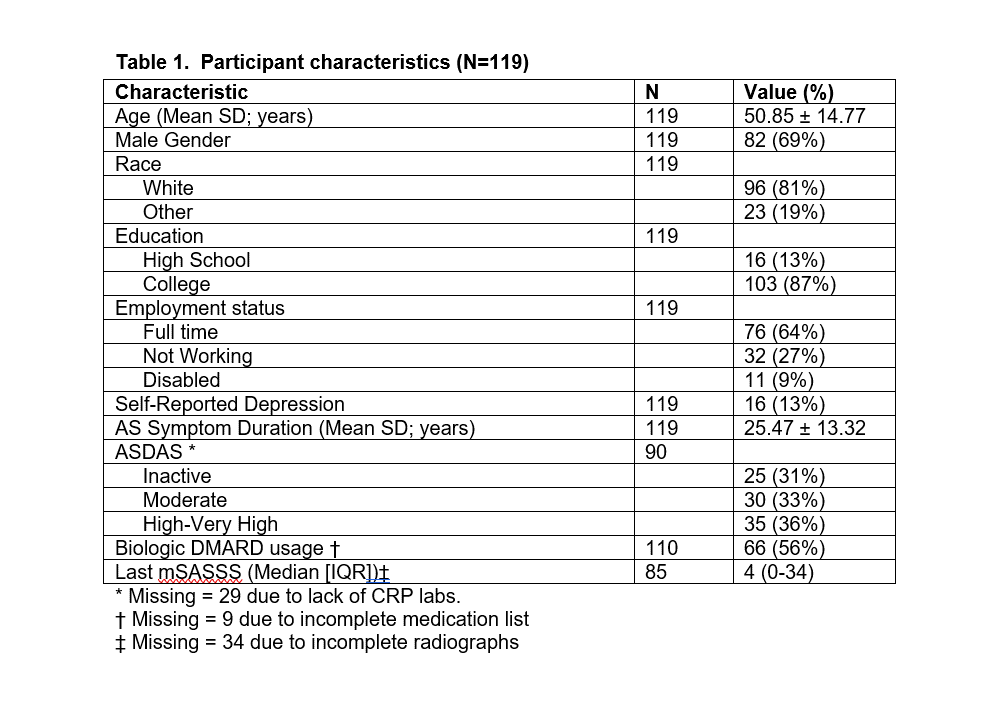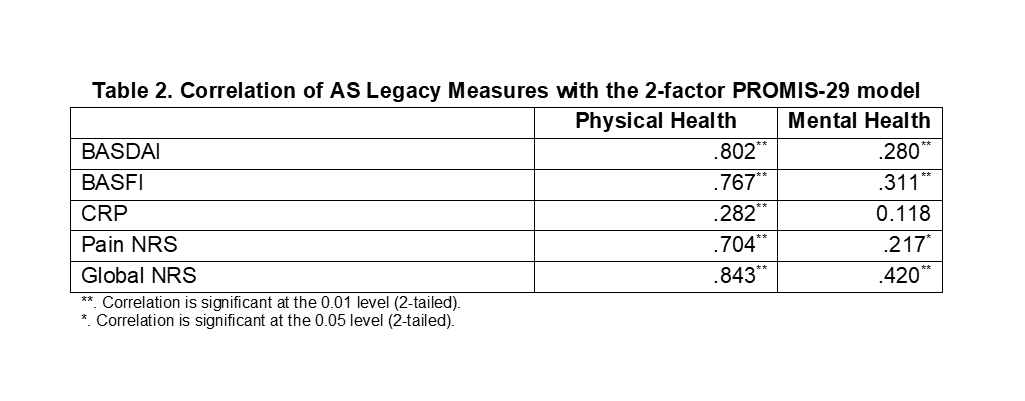Session Information
Date: Monday, November 9, 2020
Session Type: Poster Session D
Session Time: 9:00AM-11:00AM
Background/Purpose: The Patient Reported Outcomes Measurement Information System 29-Item Profile Measure (PROMIS-29) is a generic measure of health-related quality of life (HRQOL) that has seven health domains: Physical Function, Anxiety, Depression, Fatigue, Sleep Disturbance, Ability to Participate in Social Roles/Activities and Pain Interference. We hypothesized that the physical aspects of Ankylosing Spondylitis (AS) may have more impact on sleep disturbance than mental factors, which are more impactful in the general population.
Methods: Participants from the Prospective Study of Outcomes in Ankylosing Spondylitis (PSOAS) cohort completed the PROMIS-29 from 2017-2019(2). Test-retest reliability and internal consistency was assessed using intraclass correlation coefficients (ICC) and Cronbach’s alpha, respectively, of all PROMIS-29 domains. We conducted confirmatory factor analysis (CFA) using our hypothesized model (Figure 1a) as well as the general population model as described by Hays et al (Figure 1b) to study structural validity. The practical fit of the models was evaluated using the chi-squared goodness-of-test (χ2), comparative fit index (CFI) and the root mean square error of approximation (RMSEA). Good model fit was defined by a χ2 p-value >0.5, CFI > 0.95 and RMSEA < 0.06. Anxiety and Depression domains were combined into an ‘Emotion’ domain as studied in the Hays model(1). Construct validity of the PROMIS-29 were studied by studying Spearman’s correlation coefficients of the factors with C-reactive protein and AS legacy measures: BASDAI, BASFI, Pain Numeric Rating Scale (NRS), and Global NRS.
Results: A total of 119 patients were enrolled (Table 1). All domains of the PROMIS-29 showed good test-retest reliability (ICC > 0.8) and excellent internal consistency with Cronbach’s alpha ranging from 0.91(Physical Function) to 0.98(Sleep). In CFA of the hypothesized 2-factor model, we found a χ2 goodness-of-fit p-value of 0.081, a CFI of 0.988 and RMSEA of 0.095. In the general population, we found a similar χ2 goodness of fit (p-value of 0.081) and CFI (0.988), and a RMSEA of 0.090. In both CFAs, a 2-factor model was found with the physical function domain and emotional domain, respectively, having the highest loadings on Factor 1 and Factor 2. We thus named Factor 1 ’Physical Health’ Factor and Factor 2 ’Mental Health’ Factor in both analyses. Using Spearman’s correlation coefficient, all AS legacy measures showed strong correlation, rho >0.7, with the ‘Physical Health’ factor (Table 2). C-reactive protein was weakly correlated (rho 0.28) with the Physical Health factor.
Conclusion: PROMIS-29 is reliable in AS and the physical component of PROMIS-29 has construct validity with AS legacy measures. The general population two-factor model showed a better fit than our hypothesized model in CFA of our patient sample but did not meet predetermined cutoffs of good fit. Thus while our results may provide guarded support for the validity of the PROMIS-29 health profile in AS, future study of this HRQOL instrument is needed to elucidate the clinical utility in AS patients.
To cite this abstract in AMA style:
Farran Y, Ogdie A, Reveille J, Hwang M. Reliability and Validity of the PROMIS-29 Health Profile in Ankylosing Spondylitis Patients [abstract]. Arthritis Rheumatol. 2020; 72 (suppl 10). https://acrabstracts.org/abstract/reliability-and-validity-of-the-promis-29-health-profile-in-ankylosing-spondylitis-patients/. Accessed .« Back to ACR Convergence 2020
ACR Meeting Abstracts - https://acrabstracts.org/abstract/reliability-and-validity-of-the-promis-29-health-profile-in-ankylosing-spondylitis-patients/



